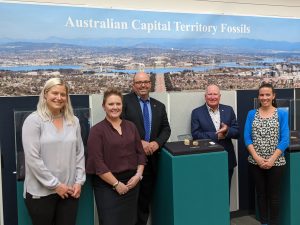Politicians to reach out to voters in 140 characters
By SHAUN BENNETT
UNLIKE previous Australian Federal elections, this year’s election campaign began earlier than expected thanks to politician’s ever-increasing use of Twitter.
The election campaign is due to officially begin within a matter of weeks; however election pressure was placed on our political leaders as early as last year when the fate of Malcolm Turnbull’s leadership was being contested in the public sphere. One of the first things Tony Abbott did when he won the top conservative job was to activate his Twitter account. He joined the likes of the Prime Minister, who is followed by more than 900,000 tweeters, and Shadow Treasurer Joe Hockey who tweets every day.
Parliamentary Librarian Roxanne Missingham estimates in her polling of politician’s use of online media that 54 federal MPs have Twitter accounts. The Greens have converted every MP in their party over to the blogging website while only 16 per cent of Labor and 34 per cent of the Liberals have made the transition.
Professor Andrew Jakubowicz from the University of Technology in Sydney says the numbers aren’t surprising since the leading political leaders tend to be the most active online.
“People on the progressive end of politics tend to be more easily refocused on using new technologies than people on the conservative end,” he says. “I think it’s going to be very interesting to see how the Labor and Liberal parties construct their new media strategies over the next six months.”
Professor Jakubowicz believes the unregulated and free realm of the online world has made a lot of politicians hesitant to join social networking sites.
“Tony Abbott is probably the most likely out of the Liberal party to use media in this way, but even he is reluctant to expose himself to user generator content, which is the lifeblood of social media. The main thing they’re interested in doing is getting their message out but not having that message appropriated by anybody else or reworked.” he says.
Mr Jakubowicz recalls the first case where this issue came into play at its best in the 1999 Victorian election. There was public outrage over the sale of the KNF Advertising Company, which was one of the factors that led to Jeff Kennett’s loss in that election.
“The fact there was a website out there blaming Kennett for all sorts of things meant there was an independent locale that people could go to where politicians weren’t in control of the information in the political landscape. Then in the 2007 Federal election the Liberal and National parties did not use this new technology which made them look even more archaic than they already were and Kevin Rudd as a new, fresh force.”
He adds that the networking function on these websites really appeals to the younger generation in particular as they are more attuned to making links and contacts in that way.
Professor Jakubowicz says that US President Barack Obama was the defining public figure to do this the most effectively.
“Barack Obama put it to a crescendo of effectiveness as a presidential candidate.”
John Barrington, federal politics reporter for Triple J’s current affairs program Hack, says that President Obama’s campaign defined political history in more ways than one.
“Congress is actually looking to save and catalogue the more famous tweets that Barack Obama has made like the ‘making history’ tweets,” he says.
Ironically enough, Barrington is under the impression that Twitter has been utilised predominately by Generation X’s and Baby Boomers.
“There’s a debate that Twitter is more for Gen X’s since blogging has been around for a while. People who want to get a message out quickly will use Twitter and that’s usually Gen X’s whereas Gen Y’s will use Facebook or MySpace.”
Barrington’s argument is supported by Missingham’s figures that reveal that the average age of politicians tweetering was 47.
Mr Barrington is adamant that this style of online interaction won’t ever entirely replace the traditional ‘on-the-street’ campaigning.
“It’ll only ever be an additive of an election campaign; it won’t ever replace the meet-and-greet campaigning on the street. It could get bigger online, but face-to-face is the way we communicate,” he says, “I think TV is the best way to get your message out, but none-the-less YouTube channels and other free mediums are playing a bigger role in these campaigns despite the net worth of TV and Radio.”
Professor Jakubowicz agrees with Barrington as he believes a majority of voters haven’t completely made the transition to the online realm.
“The primary focus for politicians is still morning television and talkback radio as they are still strong platforms in the mindset of most voters,” he says.
However, Jakubowicz has noticed that politicians have changed their political behaviour in the public sphere to attract the first time voters.
“Politicians are now turning their attention to younger voters who are more vulnerable to political spin since they are voting for the first time,” he says, “the online world is all about celebrity, novelty and shock horror.”
Barrington has noticed this trend as well due to the increasing activity of politicians online.
“This will be the first Australian Federal election that will be streamed via Twitter since a lot of the Government or Opposition policy announcements can be announced quite quickly via Twitter,” he says.
“With Twitter’s word limits, pollies can say something quickly which draws people into what they’re doing and they can then chase the story up further via their website or news organisations,” he says.
Interestingly enough, Barrington says that journalists, like politicians, were some of the first public figures to utilise Twitter in a new way.
“This time last year Annabel Crabb got the ball rolling and started updating Twitter and ABC online during question time, with the qt tag. Now politicians are tweeting all the time, whether it is Kevin Rudd or backbenchers. Most recently Malcolm Turnbull became the first politician to resign via Twitter.”
Julie Posetti, a University of Canberra journalist and academic, says that Joe Hockey and Malcolm Turnbull have figured out the right balance between personal and professional communication and real engagement with their followers. “Many are using it as a one-way broadcast medium and struggle to get beyond the impression of spin that make so many voters disenchanted,” she says in The Canberra Times.
She believes some of the tweets are impersonal and are probably written by a staffer. The most notable of these tweets have been by Tony Abbott who says “I will launch the Coalition’s plan for direct action on climate change at 12:45pm,” which Posetti says demonstrates his lack of understanding of the medium. Ms Posetti is pleased to see that Shadow Treasurer Joe Hockey has utilised Twitter in a positive way by tweeting personal messages as well as professional with tweets like “Putting son Ignatius to sleep while driving around Sydney listening to ABC Newsradio” and “Hey team give me your views on the policy and political debate on the ETS. I really want your feedback.”
“A bit of honesty and authenticity back in politics is something I am sure a lot of people would welcome.”




Be the first to comment!